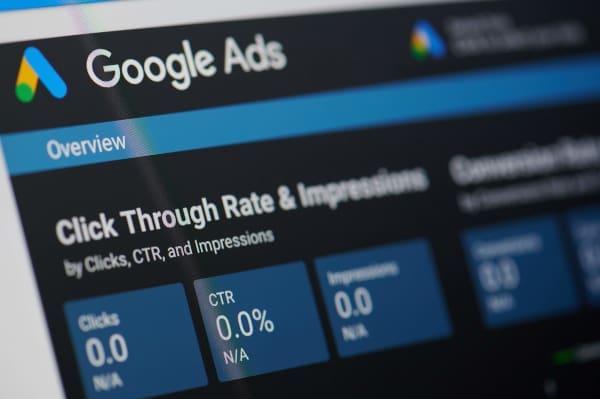Google Ads vs. Facebook Ads and What to Use
When it comes to digital marketing, two platforms dominate the landscape: Google Ads and Facebook Ads. Both are powerful tools, yet they serve distinctly different purposes, reach different audiences, and have their own unique strengths and weaknesses. Understanding these differences is essential for any business looking to effectively allocate their marketing budget and achieve optimal results.
Understanding Google Ads
Google Ads operates primarily through search advertising, where businesses bid on keywords related to their products or services. When users search these keywords, the business’s ads appear prominently on Google’s search results pages.
Strengths:
- High Intent Audience: Google Ads targets users actively searching for specific products or services. This makes it highly effective for capturing leads at the moment they are ready to buy.
- Broad Reach: With billions of searches conducted daily, Google Ads can provide businesses access to a massive global audience.
- Immediate Results: Ads can start generating traffic as soon as they’re launched, making Google Ads excellent for businesses needing quick visibility and results.
- Detailed Analytics: Google provides extensive data on campaign performance, helping businesses continuously optimize their ads and achieve better ROI.

Weaknesses:
- Costly Competition: Popular keywords can be expensive, especially in competitive industries like insurance, legal services, or healthcare.
- Learning Curve: Managing a Google Ads campaign requires expertise and regular optimization to remain cost-effective and competitive.
- Limited Visual Appeal: Text-based search ads lack visual impact, limiting opportunities for branding compared to more visually rich formats.
Exploring Facebook Ads
Facebook Ads, on the other hand, excel in their ability to reach targeted demographics using vast user data. Ads appear on Facebook and its associated platforms (Instagram, Messenger), in various formats including images, videos, carousel ads, and stories.

Strengths:
- Robust Targeting Options: Facebook’s detailed demographic and behavioral data allows precise targeting based on interests, behaviors, life events, and more.
- Highly Visual and Engaging: Facebook Ads leverage visually appealing content formats, ideal for brand building and emotional storytelling.
- Cost Efficiency: Often more budget-friendly for broader audiences or niche markets, especially beneficial for small businesses and startups.
- Community Building: Facebook Ads are excellent for building communities and maintaining ongoing customer relationships through engagement.
Weaknesses:
- Lower Buying Intent: Users typically don’t browse Facebook with purchasing intent, making conversions slower compared to Google Ads.
- Ad Fatigue: Ads can quickly become repetitive, potentially decreasing effectiveness if not regularly refreshed or managed correctly.
- Privacy Challenges: Increasing privacy regulations can limit targeting accuracy, impacting ad effectiveness over time.
Which Platform for Which Purpose?
While both platforms are powerful, each suits different marketing strategies and industries. Here’s a guide to determining the best fit for your campaign:
Google Ads Effectiveness by Industry
- High-Intent Services: Industries like plumbing, HVAC, legal services, or healthcare benefit significantly from Google Ads, where customers actively seek specific solutions.
- E-commerce and Retail: Google Shopping ads help directly showcase products, facilitating quick and direct conversions.
- Local Businesses: Google Ads are extremely effective for businesses targeting local searches like restaurants, salons, or service providers.
Facebook Ads Effectiveness by Industry
- Brand Awareness Campaigns: Industries such as fashion, food and beverage, beauty products, and entertainment often see excellent results on Facebook due to visual content and emotional connections.
- Lifestyle and Personal Interests: Products or services that are purchased based on personal preferences, social influence, or impulse decisions—such as fitness products, home decor, or travel experiences—thrive on Facebook.
- Community and Event Promotion: Businesses aiming to build ongoing relationships or promote events find Facebook highly effective due to its engagement-focused environment.
Leveraging Both Platforms Together
Rather than choosing exclusively between Google and Facebook Ads, many businesses effectively combine both platforms for maximum results:
- Awareness and Retargeting: Generate brand awareness on Facebook and use Google Ads to retarget users actively searching for your products or services later.
- Diversified Marketing Strategy: Allocate budget strategically based on your business goals—using Facebook for long-term branding and community building, while leveraging Google Ads for direct, immediate sales conversions.

Make the Right Decision for You
Understanding the distinct advantages and limitations of Google Ads and Facebook Ads enables businesses to make informed decisions tailored to their unique marketing objectives and industries. Whether focusing on immediate sales, brand awareness, or a combination of both, recognizing the nuanced strengths of each platform ensures that your digital marketing efforts are strategic, cost-effective, and impactful.
